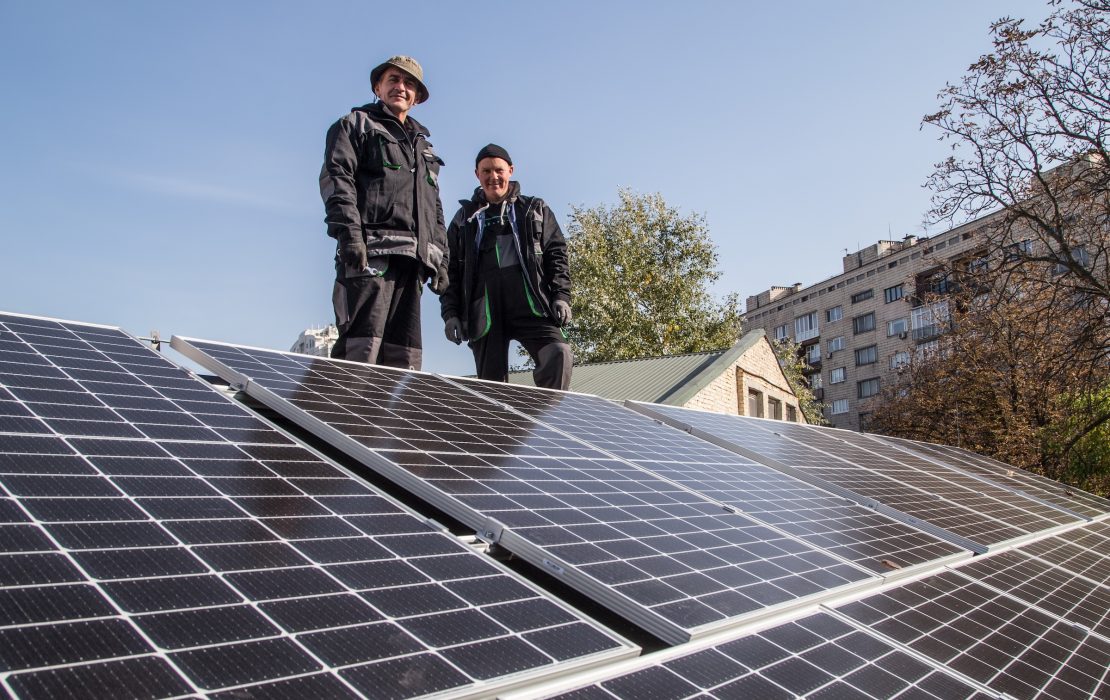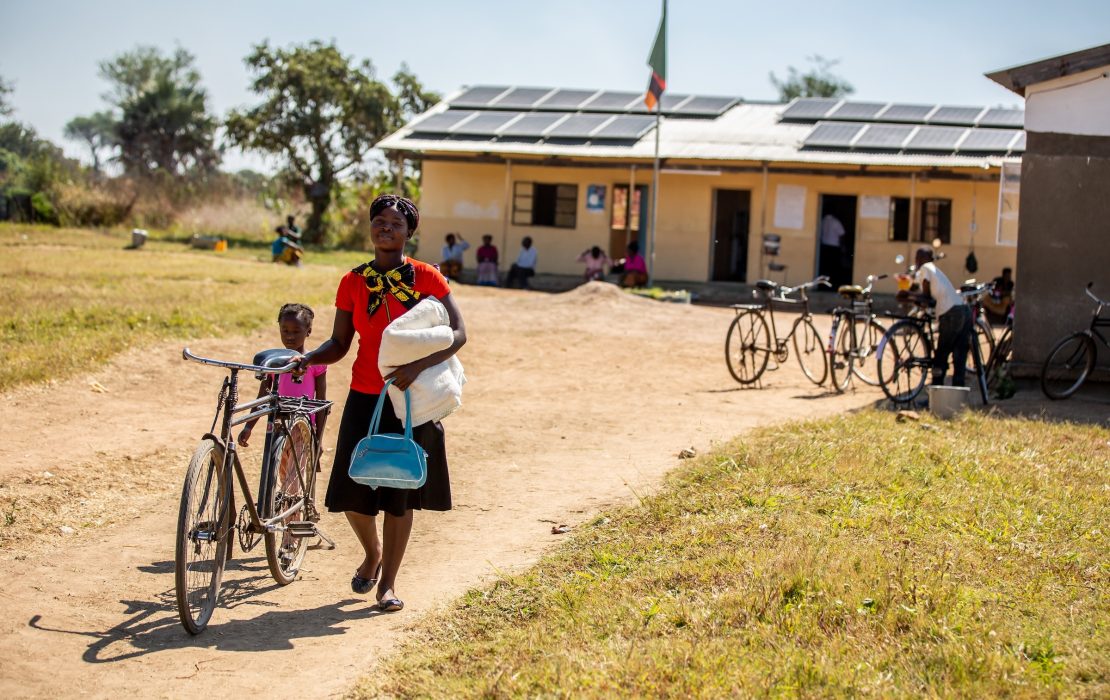Photo: Boris Sekularac / UNDP Montenegro
For more than half a century, scientists have been warning us about the dangers posed by climate change. And yet, for the longest time, changing our planet-warming economies was deemed too expensive or inconvenient, with countries continuing to release ever-increasing amounts of greenhouse gases into the atmosphere.
However, after decades of incremental progress, the tides are finally turning. Solar and wind are now the cheapest sources for new electricity generation in almost every country. Last year, renewables accounted for over 90 percent of new power additions. This means that clean energy investments reached a record-breaking US$2.1 trillion in 2024, outpacing fossil fuels for the first time.
Concurrently, new studies show that the cost of inaction is much higher than what it would take to put the world on a safer path. One recent analysis estimates that the world’s economic output could be reduced by 15 to 34 percent if global average temperature is allowed to rise by 3°C by 2100.
In this context, there is no doubt that investing in renewable energy and energy efficiency today is the smartest choice for our countries and our global community. A choice that brings strong quantifiable returns and protects our children’s futures.
So, what would a world in which we increase the ambition of our sustainable energy transition look like? And what if we pair that transition with comprehensive policy measures that enable a just transition? Can we advance human well-being while mitigating the environmental and social consequences of development that was driven by fossil fuels for the past two centuries?
To answer these questions, we partnered with the Pardee Institute at the University of Denver and Octopus Energy to explore what would happen if countries set more ambitious renewable energy targets in their Nationally Determined Contributions (NDCs) and complemented them with broader policies for a just, inclusive transition. We’ve compiled the results in a new publication, Charged for change: The case for renewable energy in climate action.
The findings are clear: higher ambition on clean energy pays off.
In a scenario where the world achieves the targets set at COP28 of tripling renewable energy capacity and doubling energy efficiency by 2030, the global share of renewable energy would grow from around 8 percent in 2024 to 87 percent in 2060, providing everyone in the world with reliable access to electricity. Moreover, the economic benefits of the transition translate to an additional $1.3 trillion being added to the world’s nominal GDP by 2060, compared to business-as-usual. Most importantly, in this scenario, the world would manage to maintain global average temperature rise to below 1.8°C. This result would significantly reduce the risks posed by climate change impacts compared to our current trajectory.

Photo: UNDP Ukraine

Photo: Karin Schermbrucker / UNDP Zambia
But there is an even better scenario. If we couple renewable energy expansion with efforts to advance the Sustainable Development Goals (SDGs) and a just transition, we have an opportunity to create a virtuous cycle of development that would improve outcomes far and wide. By integrating renewable energy investments with holistic policies in agriculture, health, education, governance and infrastructure, this scenario delivers a triple-win impact – advancing energy access, human development and climate action.
Compared to a business-as-usual scenario, the world would achieve universal access to electricity and clean cooking by 2060, 193 million fewer people would live in extreme poverty, 142 million fewer people would face malnutrition, and 550 million more people would gain access to clean water and sanitation. The economic benefits would compound these gains, delivering $20.4 trillion in cumulative savings by 2060 and increasing per capita income worldwide by $6,000. This would all happen in a future in which climate change is contained, with global average temperature rise remaining at 1.5°C – the safest threshold we can hope for under current circumstances.
Beyond being aligned with global climate commitments under the Paris Agreement, these two scenarios illustrate that accelerating the renewable energy transition is indeed economically viable and profitable. While the upfront investment needed is substantial, with estimates showing that average annual renewable investments must reach $2.5–3.4 trillion between 2024 and 2050, the gains and returns are even higher.
To make it happen, we must come together to address the key policy, technology and financing actions needed for a sustainable energy future. Structural improvements in governance, infrastructure and access to targeted climate finance are essential to help countries break free from emissions-intensive energy systems and structure their energy development as a key driver of national development priorities, including access to water, education, infrastructure and healthcare.
As countries revise their NDCs this year, the time is right for countries to raise ambition – not just for the energy transition, but for human development as well. Embedding more specific clean energy goals into climate plans, while creating supportive policies and investments, can enable countries to fully realize the social and economic benefits of the energy transition.
A safe, clean energy future is within reach, but only if we choose it. This is not a leap of faith, it is a rational economic decision that aligns with the moral one.
But let’s be clear, even renewables come with trade-offs. Their development can have real impacts on land, the extraction of critical minerals can raise environmental and social concerns, and large-scale projects may perpetuate water scarcity and affect the well-being of Indigenous Peoples and local communities.
If we are serious about this transition, we must be serious about doing it right by addressing trade-offs, building on synergies and driving the systemic changes needed to make the shift truly sustainable and just. Because clean energy is not just about numbers and megawatts. It’s about changing lives, securing brighter futures and winning the fight against climate change—the biggest threat humankind has ever faced.
*
The publication Charged for change: The case for renewable energy in climate action was developed by the University of Denver’s Pardee Institute, Octopus Energy and UNDP under the Climate Promise by the Pledge to Impact Programme.
Delivered in collaboration with a wide variety of partners, the Pledge to Impact Programme has supported over 120 countries to enhance and implement Nationally Determined Contributions (NDCs) under the Paris Agreement. Pledge to Impact is generously supported by the governments of Germany, Japan, United Kingdom, Sweden, Belgium, Spain, Iceland, The Netherlands, Portugal and other UNDP core contributors. This programme underpins UNDP’s contribution to the NDC Partnership.